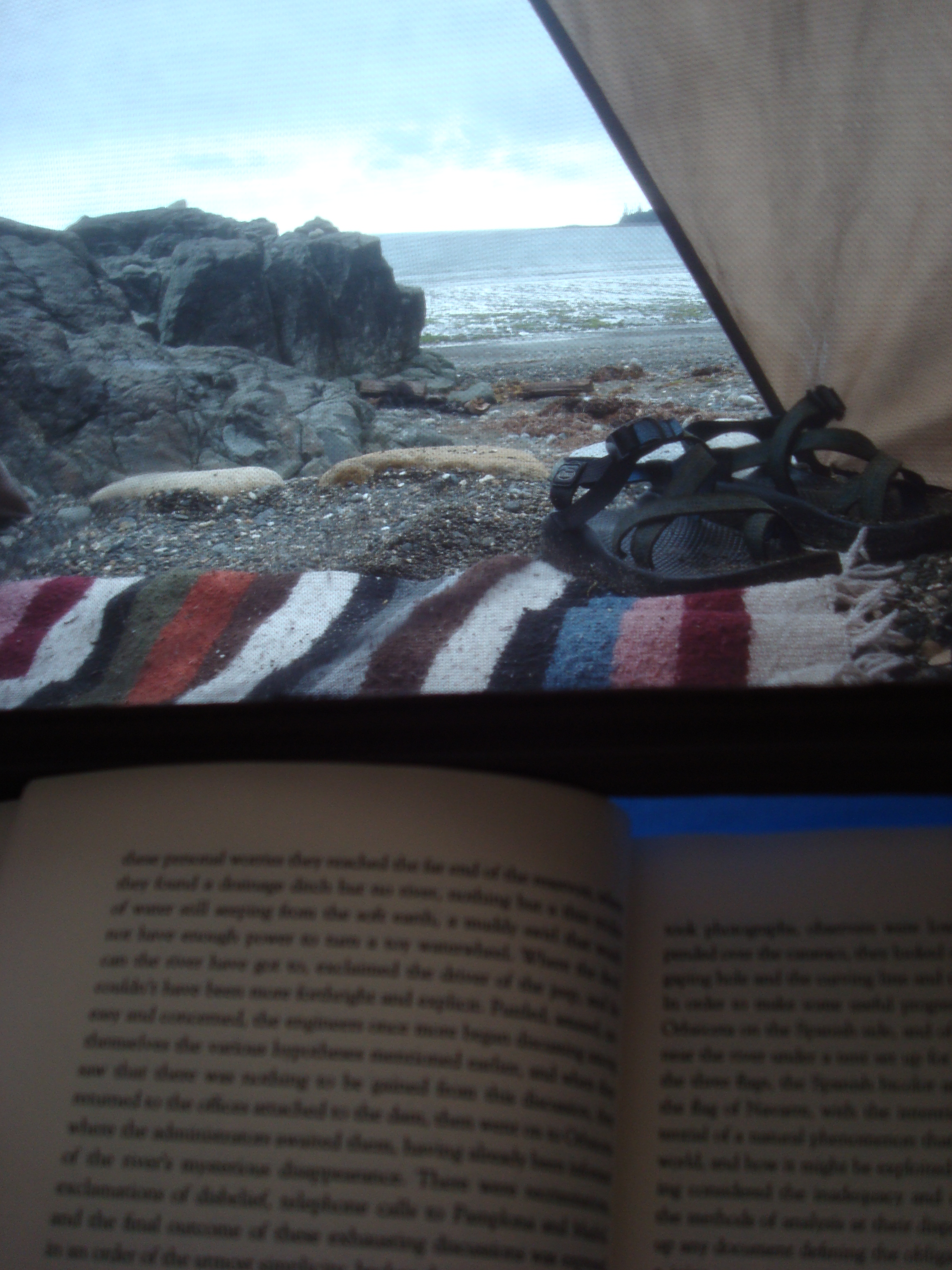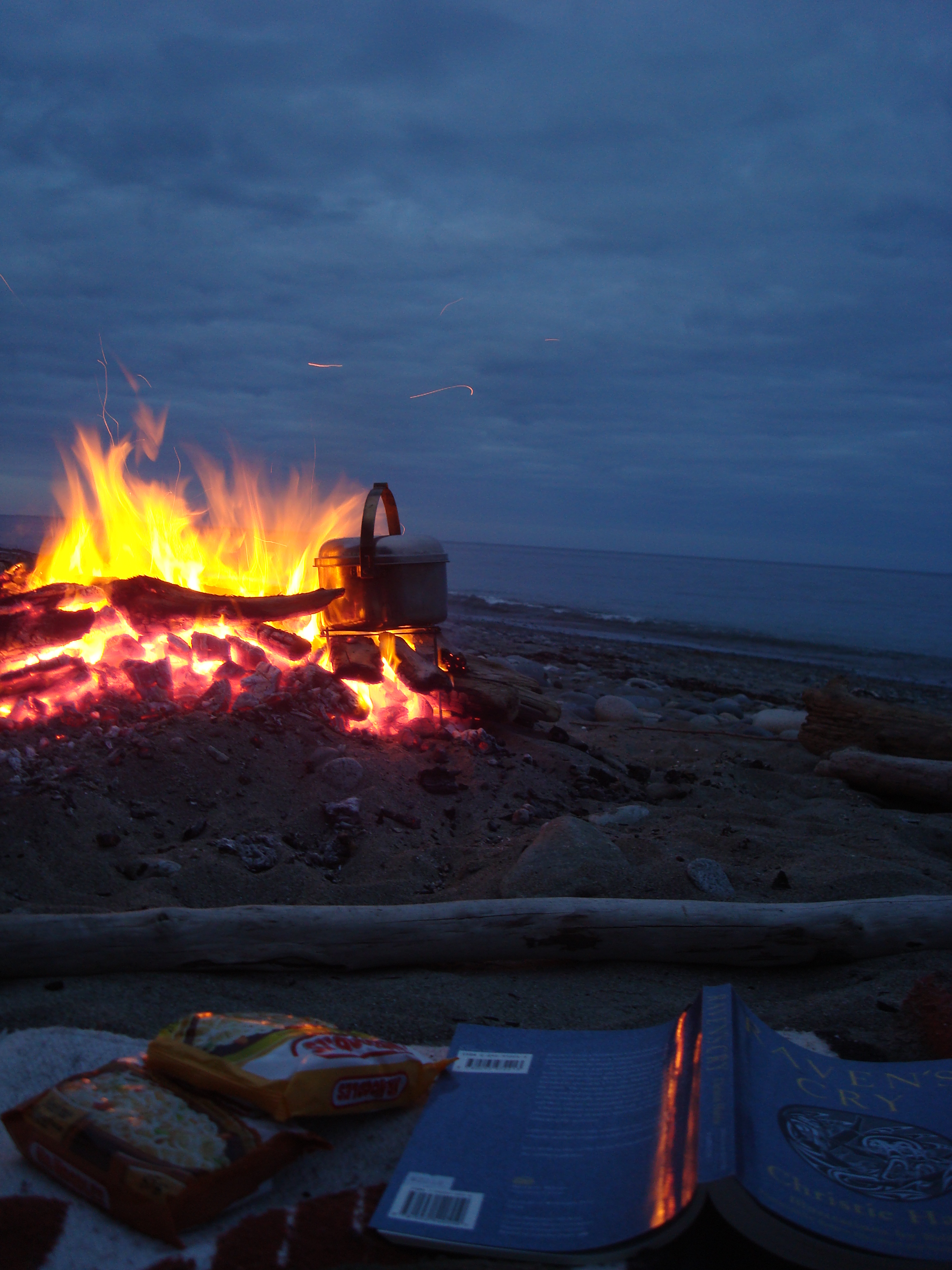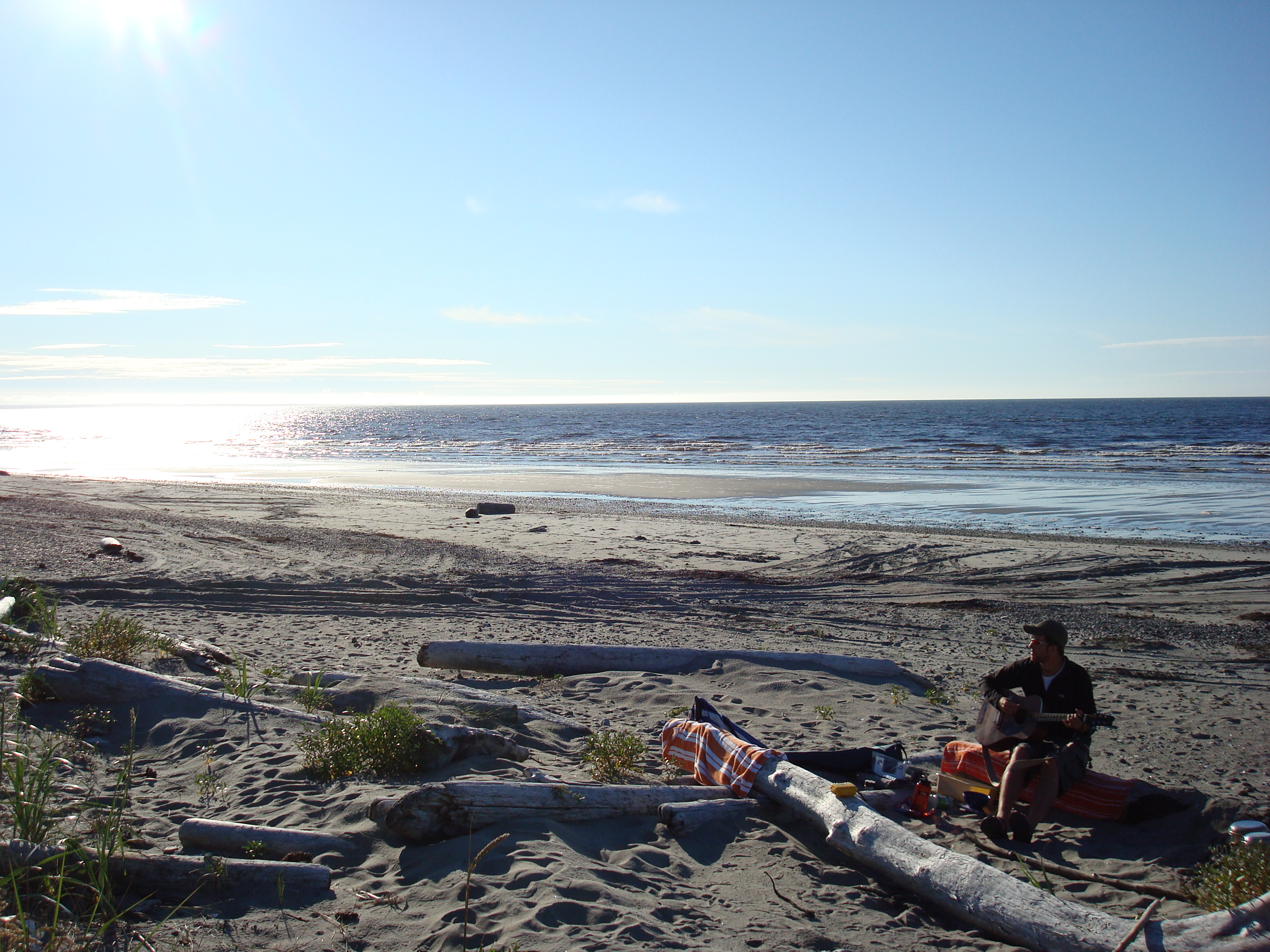Between 2003 and 2005 I spent three consecutive summers working in the woods of the Ozark Foothills in Arkansas at a summer camp, living in tents alongside sixty some young instructors huddling our lives around the idea that the indulgent experience of nature could provide some truth. We would wake with the dawn and attend daily meetings in our staff cabin where daily scribbled on a slate blackboard would be a quote that solidified or represented the philosophy of our idealistic enclave. More often than not the board would be adorned with the words of Henry David Thoreau, who today celebrates his birthday.
“Simplify. Simplify. Simplify.”
Walden 1854
The quotes indulged a romantic literary bent in many of us (I was at the time a 22 year old creative-writing student at the University of Arkansas at Little Rock), and gave way to discussions about Matthew Arnold, Ralph Waldo Emerson, Hemingway and Conrad as we paced the dewy grass on the way to the flag plaza for daily pomp and ceremony. With soil under our boots, and a day’s toil in sweat and filth that would last satisfyingly until after dark for six running weeks (day’s off from noon Saturday till Sunday), the transcendental words of the late poets and authors confirmed our suspicion that we had truly left nothing back in the cities of Little Rock and Conway, Vancouver or Coquitlam, and that we were pursuing something elemental, in the woods, something vital.
“I went to the woods because I wished to live deliberately, to front only the essential facts of life, and see if I could not learn what it had to teach, and not, when I came to die, discover that I had not lived.”
Walden 1854
As with any evidence supporting an individual (or collective) belief, the details of such arguments are not checked into fully, and the lustre of Thoreau’s mythology was not fully tarnished by the truth surrounding it. I commented to a coworker that we seemed to be using many of Thoreau’s words on a daily basis and that this quotability amounted to a different appreciation for his works than might have otherwise been the case. “Which was probably by design,” my friend commented, something that has stuck with me in interpreting the writer’s legacy, not only of Thoreau, but of a wider sample of authors.

As noted in Garrison Keillor’s Writer’s Almanac which pays tribute to the author’s birth today, we are familiar enough with the ridge-poles of Thoreau’s biography:
“Born David Henry Thoreau in Concord, Massachusetts (1817). He grew up exploring the woods and fields of Massachusetts, encouraged by his mother to learn as much as he could from nature. He went to Harvard, but he didn’t like it very much — he refused a diploma since it cost five dollars. He worked for a while in his father’s pencil factory, and as a public school teacher, and he became close friends with Ralph Waldo Emerson.
“In 1841, the Emersons invited Thoreau to live with them and work as a handyman and gardener, and he helped take care of their children, taking them on nature walks and telling them stories. Thoreau stayed with the Emersons for two years, and during that time he worked on his writing, and through Emerson, became friends with many of the Transcendentalists. In 1842, Nathaniel Hawthorne and his wife rented some property from Emerson and moved to the area. When he first met Thoreau in 1842, Nathaniel Hawthorne wrote in his journal: “Mr. Thoreau dined with us yesterday. He is a singular character — a young man with much of wild original nature still remaining in him; and so far as he is sophisticated, it is in a way and method of his own. He is as ugly as sin, long-nosed, queer-mouthed, and with uncouth and rustic, though courteous manners, corresponding very well with such an exterior.” The two became good friends, and Thoreau planted a garden for the Hawthornes and did maintenance work for Ellery Channing and his wife.
“In 1844, Emerson bought land on the shore of Walden Pond. Walden Pond was a pristine, 61-acre pond, surrounded by woods, and Emerson agreed to let his friend live on the land and build a cabin there.”
To us there could be no greater icon of the wilderness and self-reliance we felt ourselves ambassadors for six weeks every summer, and his words were capable of propelling us out into our diverse corners of the camp to instruct daily lessons in canoeing, outdoor survival, orienteering, cooking, and on and on, despite an awareness of the flaws in the conventional Thoreau Story. Keillor continues:
“People often assume that Thoreau went out into the wilderness to write his famous treatise on nature, but in fact, he was living less than two miles from the village of Concord. He had regular dinners with friends, continued to do odd jobs for the Emersons, and had frequent visitors.”
The Writer’s Almanac – July 12th, 2009
We were not the only ones. Thoreau’s influence among authors, thinkers and political leaders is as ranging as any of his period or area of writings:
Mahatma Gandhi, President John F. Kennedy, civil rights activist Martin Luther King, Jr., Supreme Court Justice William O. Douglas, and Russian author Leo Tolstoy all spoke of being strongly affected by Thoreau’s work, particularly Civil Disobedience.
Gandhi even went so far as to remark:
“[Thoreau’s] ideas influenced me greatly. I adopted some of them and recommended the study of Thoreau to all of my friends who were helping me in the cause of Indian Independence. Why I actually took the name of my movement from Thoreau’s essay ‘On the Duty of Civil Disobedience,’ written about 80 years ago.”
Though Thoreau did (technically) put his money where his mouth was, and refused to pay taxes he believed would be used to support a war he opposed, landing him in jail, he was bailed out by friends after only a night (albeit against his will) there is the same asterisk which accompanies the author’s paeans to nature: is having imagined and arranged such moving words as to call others to action more worthy an act than living out such creeds? As history bends to those who record it, one would nearly suspect that writing such ideas is much more powerful an act than singly living them. Disconnected from the imperfections and realities of the real authors of our quotations, we can strive to achieve the heights of their words’ promise.
According to Howard Zinn, Ralph Waldo Emerson visited Thoreau during his night in prison. Emerson opposed the war as well, but did little to protest it, and asked his friend, “What are you doing in there?” The legend says that Thoreau replied, “What are you doing out there?”
This anecdote need not be entirely truthful, I doubt. As it was not crippling to the theory’s validity that America’s founding fathers owned slaves while they wrote “All men are created equal,” Thoreau need not be living example of his words, as it takes some time for history, for reality, and truth lived to catch up to truths expressed. If not for those who first express them, would we ever realize such dreams possibilities?




Great post. While I’m tempted to hold an author accountable for the validity expressed in their words (ie. walking the walk) it becomes immediately clear that upon publishing, words no longer belong soley to the author.
The reader will interpret truths how they see fit. Certainly, we can still hold the author up to scrutiny (ex. Alan Watts’ being an alchoholic comes to mind), but truth depends entirely on the reader, for better or worse, regardless of the author’s original intentions.
Therefore, history appears to rightfully judge Thoreau more for his impact, rather than his existence.
I tend to agree. It can be disheartening to learn than Tolstoy womanized while preaching chastity, or that Thoreau made no stranger of himself in Concord’s pubs during his time “in the wild,” but if the words written propel others to the lofty heights promised in the literature, they have done their duty.
It is timely to think along these lines with Michael Jackson’s life being awkwardly poured over by global media: artists in the past – even the incredibly recent past – have been able to shield themselves from the kind of scrutiny which could undercut their art (I remember seeing a Beck interview where he claimed that Pink Floyd was so fascinating because as a fan at the peak of their popularity, even having attended their concerts, you didn’t altogether know what the members of the band looked like). Scholars do this to the likes of Thoreau, and Tolstoy, but it is difficult to conceive of maintaining this divide between artist and public in today’s saturated media landscape, where personality trumps product at every conceivable turn. If it were only Michael’s music (or OJ’s football, or Thoreau’s Walden) up for discussion, how different would our appreciation of “Billy Jean” be?
What it comes down to, I think, is the role of artists in a society: to dream, to go beyond the bounds of human thought up to this moment, and provide the framework for contemporaries and future audiences to step into. Though I mangled the point somewhat in the last paragraph of the above post (and have since tried to amend), Jefferson and the fathers of the Declaration of Independence provide example for this point. It is ironic – in the same way Thoreau’s (and perhaps M. Jackson’s) cavorting is – that the only country to ever write “all men are created equal” was the same country it still took almost 200 years to provide the groundwork for such a philosophy, the words themselves written and signed off on by men who physically owned other men (and women) as property; but irony doesn’t take away the power latent in such language.
Our values – especially those written into democratic constitutions – are not temperature readings of what is. Rather they speak to what we can be. I shudder to think what the world would be like if not for the dreams of Jefferson as he drafted the Declaration, or for that matter our own Pierre Elliot Trudeau, who saw it passed into law that the “Government of Canada recognizes the diversity of Canadians as regards race, national or ethnic origin, colour and religion as a fundamental characteristic of Canadian society and is committed to a policy of multiculturalism designed to preserve and enhance the multicultural heritage of Canadians while working to achieve the equality of all Canadians in the economic, social, cultural and political life of Canada.” This doesn’t mean we were there in 1971, and nearly ensures that we might never be: but we have it written that this is what we will work towards.
But we’ll have to look the other way on all of that Trudeau-mania stuff…